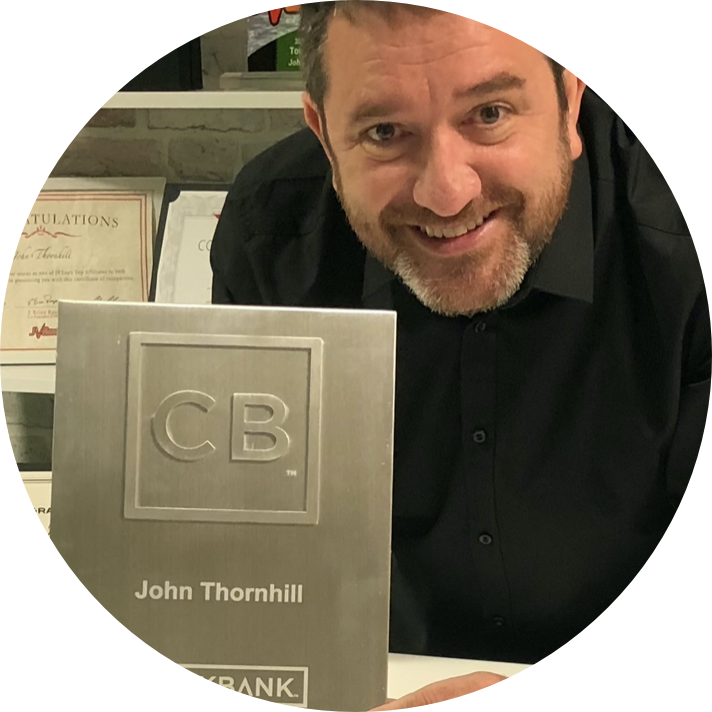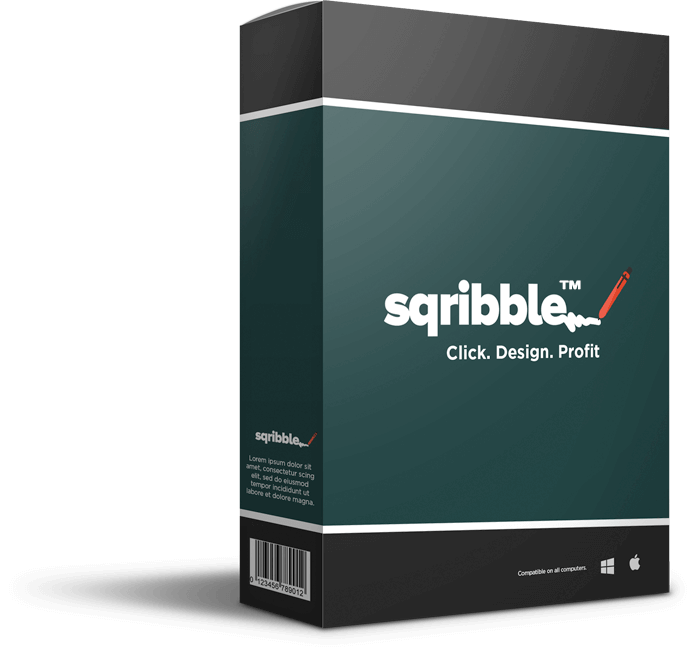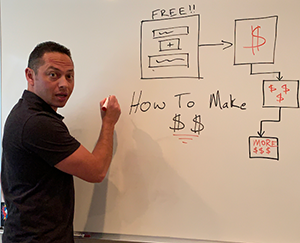How to Become a Fractional CMO written by John Jantsch read more at Duct Tape Marketing
Ever heard of a fractional CMO? If you’re shaking your head, buckle up because it’s the future. Imagine wielding the power of a marketing wizard without having to afford their six-figure salary. That’s exactly what becoming a fractional CMO is all about. You see, as marketers we often forget that less can be more; but […]
Beyond the Full-Time CMO: How Companies are Opting for a Fractional Future written by John Jantsch read more at Duct Tape Marketing
0
The Duct Tape Marketing Podcast with Nicole Bernard
In this episode of the Duct Tape Marketing Podcast, I interviewed Nicole Bernard, a seasoned marketing professional with an impressive legacy that includes stints at Microsoft and collaborations with big names like REMAX and Venus Williams. We dive deep into the transformative realm of the Fractional CMO, uncovering the nuances and potential it holds for modern businesses. With Nicole’s first-hand experiences and insights, we explored how this Fractional CMO trend is not just a fleeting fad but a strategic maneuver that’s reshaping the contours of business leadership in today’s dynamic landscape.
Key Takeaway:
The rise of the Fractional CMO marks a significant shift in the way businesses perceive leadership roles. Companies, by opting for a Fractional CMO, are not just seeking to cut costs but are keen on leveraging the diverse expertise and perspectives these professionals bring. Operating across varied industries, Fractional CMOs offer a fresh, tailored approach, helping businesses to be more agile, adaptive, and strategic in their planning
Questions I ask Nicole Bernard
- [00:46] What exactly is a fractional CMO? How would you briefly describe this role to someone unfamiliar with it?
- [01:28] In your opinion, what type of business is the ideal fit for a Fractional CMO? Specifically, what might be missing in such a company that you can fulfill?
- [02:36] Do you find that the market is starting to wake up to both the need for strategy?
- [03:42] Can you define the specific responsibilities and boundaries of a Fractional CMO?
- [04:40] In your role, how often do you find yourself involved in the actual implementation?
- [05:20] Could you shed some light on your business model? How do you handle tasks that might go beyond what you personally offer? Do you collaborate with a team or partners?
- [06:14] One challenge of the Fractional CMO model is essentially selling your time. How do you avoid this?
- [07:30] Is it challenging to define a clear scope for clients regarding what they can expect from a Fractional CMO?
- [09:25] What are some potential pitfalls associated with this model?
- [10:43] How has adopting the Fractional CMO title influenced your relationship with clients?
- [11:50] Have you noticed any changes in client relationships over time, perhaps in terms of duration or their reliance on you?
- [12:48] Upon starting with a new client, are there specific initial steps you consistently follow?
- [14:11] In terms of educating clients, how does this role differ from traditional agency models?
- [15:10] A traditional CMO often has the task of building a team. In your experience, do you often work with companies lacking strategic hires, and do you assist in team building?
More About Nicole:
- See how you can work with Nicole – Here
- Listen to the Bubbles and Biz Podcast – Here
- Connect with Nicole Bernard on LinkedIn
Get Your Free AI Prompts To Build A Marketing Strategy:
Like this show? Click on over and give us a review on iTunes, please!
Connect with John Jantsch on LinkedIn
John Jantsch (00:08): Hello, and welcome to another episode of the Duct Tape Marketing Podcast. This is John Jantsch. My guest today is Nicole Bernard. She began her career with Microsoft over 17 years ago, and since that time has owned and operated two successful businesses, as well as worked with other major brands, including Max and Venus Williams. She also hosts a popular podcast called Bubbles and Biz and is a contributing writer to entrepreneur. We’re going to talk about her fractional CMO experience. As you know, I’m doing a few shows specifically on that topic. So Nicole, welcome to the show.
Nicole Bernard (00:44): Thanks for having me. I’m excited to connect and chat today.
John Jantsch (00:46): So the term fractional C M o, while it’s become I think more mainstream still has a lot of people confused, if somebody asked you, you’re at a party and you said, I’m a fractional C M O, and they said, what the heck is that? How would you briefly give a description of what that is? Yeah,
Nicole Bernard (01:04): I think the word fractional just throws people off, whether it’s like C O O or c e o, any of that. But yeah, I explained that it is. I help what companies and businesses I work with their teams, but for not full-time. So just a fraction of what they would need because they’re not quite in the capacity to have a full-time C M O. So I come in and I’m able to support them in their teams with their budget and the time that they have.
John Jantsch (01:29): I always like to ask, who do you think? What’s the perfect business that needs one of those? You talk about a company with a team, theoretically they’re getting marketing done, so what’s missing in the right perfect business for you to work with?
Nicole Bernard (01:42): Yeah, so yeah, the few that I have worked with and consulted with over the years that were just prime for the spot, they’ve been in business for a while, they’re building their teams. A few are architectural design companies. One was a big staffing company and they had the team in place. They had actually a social media director and marketing director, but they didn’t have that one piece to tie them all together to start looking at the 20,000 foot level as well as keep them on track to execute the day-to-day and week to week. So that’s kind of where I’ve seen it. They’ve been in business for a while, they’re doing well, but something’s missing and they’re looking for that one piece to take it to the next level.
John Jantsch (02:18): Do you find that the market is recognizing that term? I mean, I’ve essentially been doing fractional C M L model for probably 15, 20 years, but 15, 20 years ago if I’d a total business that they would’ve looked at me like I was crazy. Right. But I think the whole fractional model itself is leaking into a lot of areas. So do you find that the market is starting to wake up to both the need for strategy and the concept of outside strategic help? I
Nicole Bernard (02:44): Think so. I mean, I feel like I’m seeing the word fractional again in front of different executive level titles a lot more and more. And even when people hear it, it’s still kind of that confused look, but they’re able to grasp it a lot quicker than I think they would’ve not too long ago. And I don’t know if that covid helped with it either, or was it just kind of around the same time that a lot of these different kind of positions came available?
John Jantsch (03:12): Yeah, I think Covid helped in two ways. Frankly, I think a lot of businesses got caught off guard and realized what, we don’t have a strategy. So I think that was part of it, and I think there’s a whole lot of CMOs out there that said, I’m going to go start my own thing. And so I think you had this convergence of supply and demand increasing at the same time.
Nicole Bernard (03:30): Yeah, totally. Yeah, that’s kind of where my experience of being a fractional cmmo kind of took off. It was right before, and then Covid kind of bumped it up and over.
John Jantsch (03:40): Yeah, so here’s what a fractional C M O does. Here’s what we don’t do. I mean, do you have this fine line of here’s what you’re going to get from me?
Nicole Bernard (03:52): But I think every business is so different. So it still has to be so adaptable to that specific business and what their goals are and all of that. But you have a general, we start in the beginning with your foundation, what they’re looking for, what they’re missing, and then again, identify where their people are, their buyer personas, and then start to build out that strategy of what would work the best for them. And then depending if they do have a team or not, or how big they are, just what those expectations are and what the reporting, all of those things. So
John Jantsch (04:21): I think in this model, in a perfect world, there’s a whole lot of people that would like to come in and say, here’s everything you need to do, see you later. But most businesses, I mean that I’ve worked with anyway over the years have said, wait, who’s going to do all this now? Or will you stick around and at very least help us orchestrate? Do you find that you are increasingly getting either drug into or having to push back on actual implementation?
Nicole Bernard (04:48): So I think when they start to understand it, and those initial first meetings, they’re like, oh, this is amazing. But they start to get a little overwhelmed, like, oh, we need to be doing all of this and we need to track all of this. So that has ended up being longer term relationships, and I probably thought that they would, but it’s been great. And I think also the accountability. So since they’re not 100% sure they want someone to guide them and or have their team answer to them. So yeah, definitely a little bit longer probably than I
John Jantsch (05:20): Thought. So tell me a little bit about your particular business model, organization wise. Are you doing this kind of on your own? Because you can, do you have a team of implementers or if somebody does need more than say you personally can provide, do you bring in partners? What’s kind of been your model?
Nicole Bernard (05:38): Yeah, so I started as a marketing agency back in 2016, after we closed our first business and just did strictly done for you services. And then again, kind of branched out in 2019 with this. So I have a team, like a graphic designer, I have writers, I have a marketing assistant, so that’s able to take that part of the business. And then for fractional cmo, that’s just all me, but if they do need help, we’re able to, which is kind of nice to dual service them if they’re not wanting to do all of the marketing tasks. So kind of two different models, but just parallel with each other.
John Jantsch (06:14): So here’s the big question that I run up against with a lot of people that have either want to do this model or have actually jumped out in doing this model of fractional C M O. In some ways, you’re just kind of selling your time. I mean, it’s like I can divide myself in three ways. You get this and you get that and you get that. Do you find that’s a little bit of the challenge of this model is that, I mean, you may be well paid for your time, but you only have so much time,
Nicole Bernard (06:43): Right? Yes, because definitely a cap on how much you can do as far as selling your time, and then too, even not just being on the meetings or the calls, there’s other admin and things to take care of. So that is definitely, I think we all need more clones of each other or something to solve that.
John Jantsch (07:01): Do you work from a framework? The reason I ask that particular question is actually, I mean, we actually have a fractional C M O system that we license to people. And what makes it work is it has scope. It’s like, here’s what we’re going to do. Whereas I think a lot of times business owners don’t really know what they need, but they’re willing to tell you what they need. And so if you just kind of go, okay, yeah, we can do that, and we’ll be in this meetings on Tuesdays, and next thing you know get sort of sucked in to the business, do you find that, have you found it hard to put a scope around what they’re going to get from you as a fractional sema?
Nicole Bernard (07:38): Yeah, and I think at the beginning I didn’t as well, and I didn’t set boundaries super well, so I’d be answering emails at 11 o’clock at night. So yeah, so there’s definitely a
John Jantsch (07:49): Framework. You’re an employee even though you’re not. Yes, exactly.
Nicole Bernard (07:52): Definitely a framework and boundaries that clear on in our kickoff call, so everybody’s just on the same page and understands what is expected and where we’re going and things like that. But definitely I did not in the beginning, and that was a little hard to overcome. Hey,
John Jantsch (08:06): Have you ever tried to hire freelancers and found that the quality of work was lacking or you got all the outsourcing excuses as to why the work didn’t get done on time? Well, DeskTeam360 has revolutionized the outsourcing game with their insourcing program that eliminates all those frustrations and excuses. You get unlimited graphic designs, website funnels, C R M, email automation integrations, automations, really anything that requires you to log into software. Imagine all the time and frustrations you can save from trying to get your tech work done properly. We use DeskTeam360 every day in our business, and so I’ve negotiated you a 10% deal. That’s right. Just go to a deskteam360.info, book a discovery call, and you’ll receive the special duct tape marketing 10% off because hey, your pal John always takes care of you. So that’s it. Go to DeskTeam360 info and book your call today.
(09:06): Did you know that with HelloFresh you get Farm Fresh pre-portioned ingredients and seasonal recipes delivered right to your doorstep, skip trips to the grocery store and count on HelloFresh to make home cooking easy, fun and affordable. That’s why it’s America’s number one meal kit. Look, as a busy entrepreneur, I know your schedule doesn’t always leave time to spare. And with HelloFresh, you don’t need to spend all evening in the kitchen to whip up the wholesome meal with their quick and easy recipes and 15 minute meals. You can get a tasty dinner on the table in less time than it takes to get takeout or delivery. So you can then focus on what really matters. And when you get Hello Fresh, you’re also getting top-notch produce since it travels from the farm to your door in less than seven days. My wife and I are vegetarians, and one of the things I love is that we still have great selection picking our meals.
(10:06): Look, go to hellofresh.com/50duct, that’s D U C T, and use the code 50 duct, and you’re going to get 50% off plus another 15% off the next two months. So that’s www.hellofresh.com/50duct . And again, don’t forget to use that code 50 duct D U C t, and you’re going to get 50% off and another 15% off for your next two months. I’m sure that every one of your engagements has been amazing, but tell me where you assume potentially now where have been some real pitfalls. You didn’t do this and so it turned into that, or you didn’t identify something or the expectations were wrong. Where are the potential, we’ve started to allude to a little bit, but where do you find some of the potential pitfalls with this model can be?
Nicole Bernard (11:02): Yeah, so I think it kind of ties in with that the first, or just the question a second ago of really setting those expectations because I don’t think business owners realize how long marketing can take to start really seeing results, especially if they’re not doing paid media or anything like that, which a lot of ’em that I’ve worked with to have a little bit of both, but you’re going to wait a little while for SS e o to kick in. And I think they’re wanting results extremely fast, and we are getting results, but not kind of what they have, I think, in their mind of what should be happening. So just setting, again, those expectations of this might, depending on the strategies that we’re working on, this might take a little bit longer, and I didn’t do the best job explaining that in the beginning as well, but now I definitely do.
John Jantsch (11:49): Yeah, I mean, you could make a case for saying you avoid those problems choosing the right client. Right, exactly. Which obviously until you have a little experience doing this, that sounds good, but it’s sort of hard to figure out, right?
Nicole Bernard (12:03): Yeah, definitely.
John Jantsch (12:04): So when you had your agency, and in many cases agency model is even though you’re going to do some strategic work, a lot of it’s thought of like, no, you’re brought in to do this project, then this project. Did you find that when you went to the fractional C M O positioning at least that it changed or it created a different relationship with the client?
Nicole Bernard (12:25): Yeah, it definitely did because my agency clients, they’re great, had ’em for years, but there’s a little bit of a different kind of relationship that you have as the fraction C M O. It’s a lot more hands-on, more meetings. We have meetings in the agency world, but we send reports, so it’s a little bit more disconnected than getting really in their rolling your sleeves up and the fractional C M O with the business and their team for sure.
John Jantsch (12:52): Here’s what I’ve noticed too, because we’ve done the same thing over the years, is that I think businesses tend to view their agency partners as more vendors, whereas in the fractional, especially when somebody comes in, I mean you get close to the business, you’re probably getting into areas that they didn’t think were even marketing with them eventually. And you become this trusted advisor for them, don’t you? And I think that change is a great deal, and in fact, you talked a little bit about client relationships going on maybe longer than you originally thought they would. Do you feel that there’s any aspect of they just want you around?
Nicole Bernard (13:27): Yeah, maybe. Yeah, it’s funny. You really do develop a deeper relationship than just businesswise. Like you see, they’ll tell you about your fit, their family and things like that. And so it’s just that trusted relationship and wanting that to keep going. Plus, I think the accountability factor has been huge too. That has been one of the biggest things I’ve seen that people really do want, and that also just sometimes I feel like you’re okay, you’re ready. Everything you need to do, you’re ready to graduate, you don’t need me anymore. And some of them are, well, no, I kind of still do. So it’s been just kind of figuring that out. You’re ready to graduate.
John Jantsch (14:07): I have a client that I’ve had since 2004, and they really literally just want a monthly check in with me. I mean, they just want to, here’s what we’re doing, everything’s going good. Do you see anything? And I think there is a bit of that. They’ve just gotten used to it.
Nicole Bernard (14:21): Definitely.
John Jantsch (14:22): So when somebody first hires you in this role, do you have, here’s what we have to do first. I mean, we have to go analyze and we have to go talk to your, tell me what your first 30 days looks like.
Nicole Bernard (14:35): Yeah, so I definitely start with a pretty good audit of what they’re doing and then run some different tests on my own and see where our baseline is at, what they’re struggling with, what their goals are, their positioning. B two C is way different than B two B marketing. So just starting at that baseline, getting all of these, and it’s funny too, a lot of times when I start doing that, the business owners are like, oh, I don’t even know where that’s at. Or I’m not sure. They start peeling all of these layers of the onion that they didn’t even really know that they had to. But then they’re also so relieved now they’re looking at the broad picture, okay, this is everything. And they feel a little bit more in control finally starting to take control of it. And then, yeah, I’ve got a whole workbook that we start with, again, their buyer persona, their dates, things like that, their smart goals, and they have a kickoff call and then then we start meeting and implementing. And then from there, reporting, just seeing what’s working, what we need to fix, things like that. But that 30 days is, it’s a lot quickly, but then, yeah, kind start that cadence of meeting expectations.
John Jantsch (15:44): How much training or teaching do you feel like this involves over, say, a traditional kind of agency model?
Nicole Bernard (15:52): Yeah, I think it’s a good bit because they are wanting to understand, whereas a vendor, they just want you to take care of it. As a marketing agency, I am not really sure. I don’t really care. They don’t care, but they just want it to be done. In this model, I find that they want to know what’s happening and why it’s happening so they can better understand, which has been great. It’s been really fun, and I’ve learned that I actually really teaching them as we’re going along. And it’s kind of neat too for them to be like, oh, that’s why we’re doing that.
John Jantsch (16:24): So one of the accountabilities of a traditional C M O is to build the department or the team. Do you find you end up working with folks that they don’t have a strategic hire, maybe they’ve hired a couple people, like everybody, they’re young so they can do social media or whatever kind of the typical structures. Do you find that, do you come into roles ever and help people build a team?
Nicole Bernard (16:46): Yeah, I’ve done that as well. Yeah, sometimes it’s usually they’ll hire a social media person and then kind of think that’s all of marketing, and we’re like, no, there’s a whole bunch of other aspects. But yes, and I really enjoy that too, kind of, because I think that’s also, sometimes it’s a big step of hiring someone to bring onto your team. So again, getting that feedback, they like to confide and figure out what their hire looks like. So yeah, that’s been really fun too.
John Jantsch (17:11): Well, and in many cases, they don’t have a strategic marketing hire because they really don’t understand marketing that fully themselves. So I think having somebody who can help ’em define a role, what that role would do, maybe even manage, I know in cases we’ve really done a lot of the managing of some of the roles because they didn’t have ’em because they didn’t want to do that part. So I think there’s a lot of growth that can happen now from
Nicole Bernard (17:36): Yes, definitely. And I’m going to, in the beginning too, a lot of times it’s the owner or higher up, then they’re kind of on the calls and then they hire the right people, and then they kind of fall off. They’re still wanting to be in the mix a little here and there, and they’ll hop on. But then once they hire that person, that’s what they actually need, not just like a social media marketer then. Yeah.
John Jantsch (17:58): Awesome. Well, Nicole, I appreciate you stopping by the Duct Tape Marketing Podcast to share a little bit about this evolving role you want to, is there anywhere you want to invite people to find more about your work or connect with you?
Nicole Bernard (18:09): Yeah, you can head to my website. It’s just NB.Marketing, so it does talk about the agency and also the fractional C M O services. And from there you’ll find the link to the podcast too and articles that I write. So that’s a great place to go.
John Jantsch (18:23): Tell me a little about your podcast. Just are you doing solo shows or you do interviews or
Nicole Bernard (18:27): No, I do interviews. You’ll have to come on. Yeah. I ship champagne to my guests and we sit there and we pop open the bottle and we talk about our entrepreneurial journeys and different tools. They like, what marketing works for their business, different things like that.
John Jantsch (18:43): It’s been a lot of fun. So that’s the bubbles and biz. Okay, I get it now. Yep. Awesome. Well, again, I appreciate you stopping by and the next time, hopefully I’m in Hood River, Oregon. We can connect in real life.
Nicole Bernard (18:55): Yes, that would be great. Thanks for having me.
Sign up to receive email updates
Enter your name and email address below and I’ll send you periodic updates about the podcast.
This episode of the Duct Tape Marketing Podcast is brought to you by the DeskTeam360
Desk team 360 is the #1, flat-rate, digital marketing integration team, that helps small businesses and marketing agencies with graphic, web design, and on-page marketing services.
Recommended Story For You :

How To Make $3493 Commissions Without Doing Any Selling

Successful dropshippers have reliable suppliers.

People Think I Use A Professional Voiceover Artist. NO! I Just Use Speechelo!

Make Money Testing Apps On Your Phone Or Tablet

Make More Money or Lose Everything

Sqribble Is The ONLY eBook Creator You’ll Ever Need.

Work & Earn as an Online Assistant

Create Ongoing Income Streams Of $500 To $1000 Or More Per Day

It's The Internet's Easiest Side Business.


